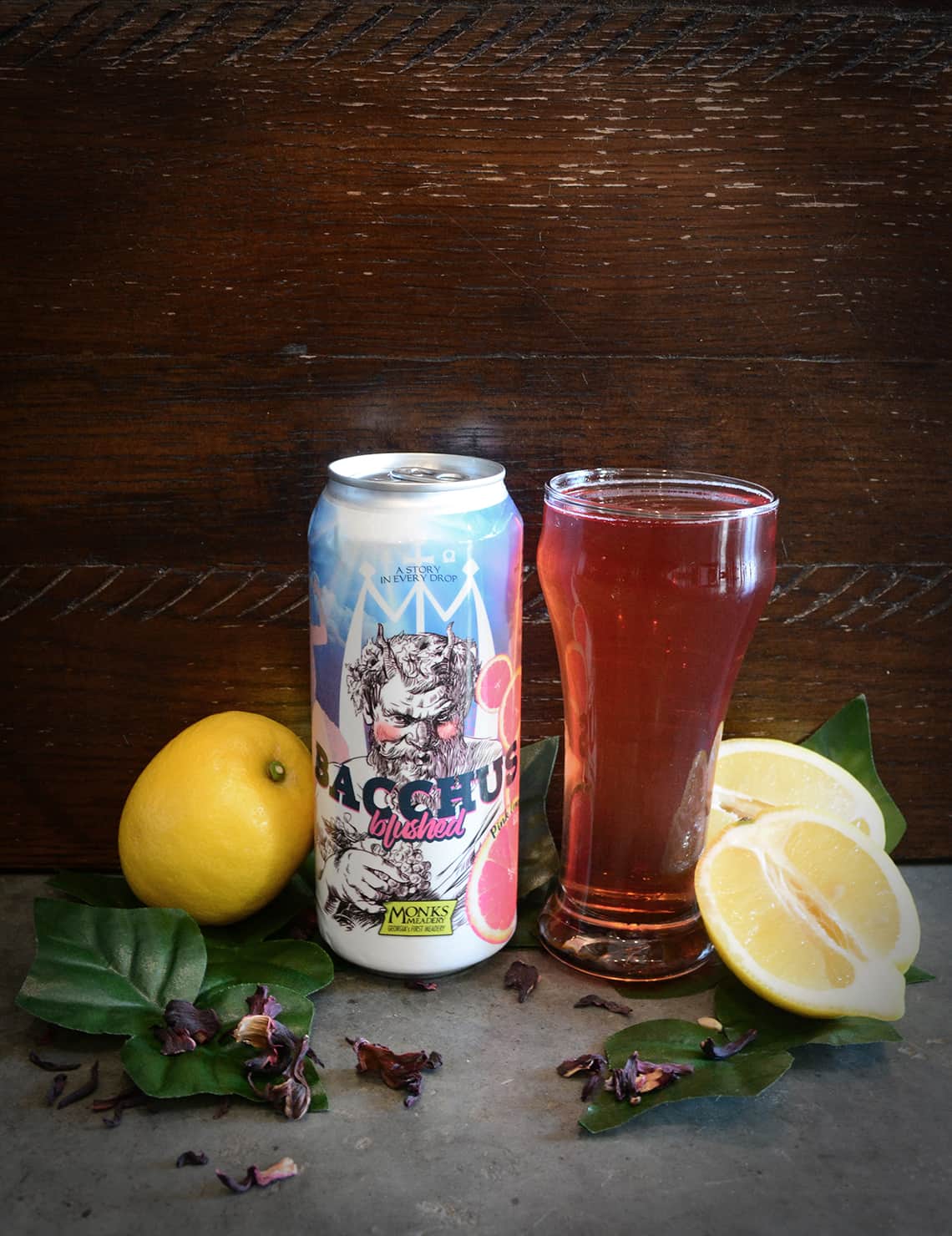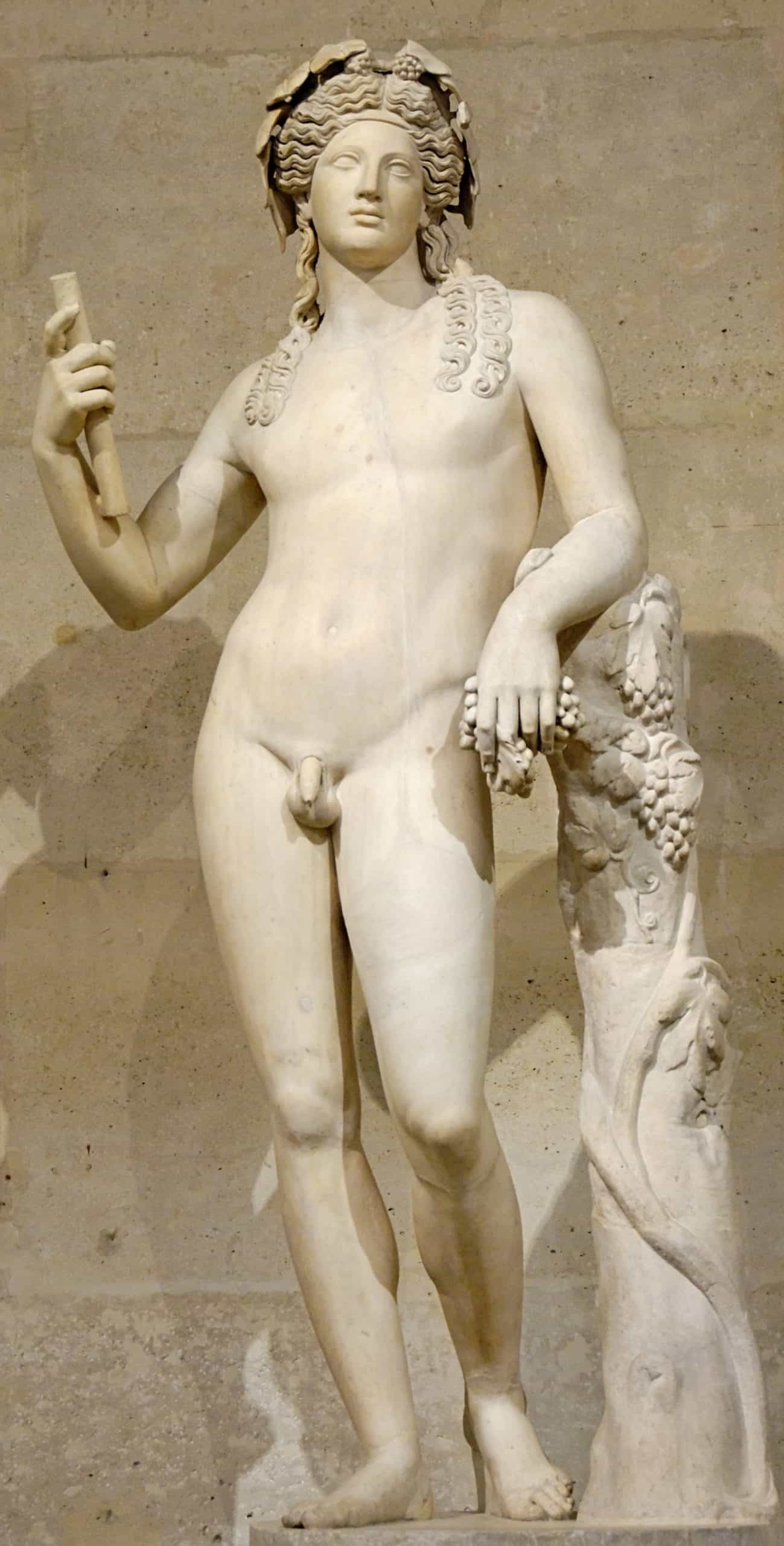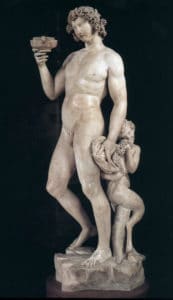A story in every drop is right because we have a very interesting one for you today. You’ve tried Bacchus Blushed, our pink lemonade mead, it’s delicious, and you love it, Duh! But… Have you ever wondered who the hell is Bacchus? I mean, sure, we know that he’s the Roman god of wine and debauchery, but where did this guy come from? What’s his story? Why did he have a cult? And is this god’s cult responsible for our (more tamed) modern-day gatherings and festivities? Hopefully, we can provide some answers.

Greek Mythology Origins
Roman gods are usually renamed counterparts to Greek gods, or gods from territories conquered by the Romans. That’s why they have so many of them, as they waged and won wars, they awarded the gods of the defeated armies acceptance into their culture and religion. Bacchus is the Roman counterpart of the Greek god of wine and revelry, Dionysus.
We say “hopefully provide some answers” because Greek gods come from Greek mythology, or myths from ancient Greek literature, which differed depending on the author. It seems that the earliest accounts of Greek mythology were based on the work of two authors whose poems attempted to explain the origin of existence. We’re going to focus on the storyline of the more popular of the two, Hesiod’s 1,022-line poem, Theogony. (Fun fact these guys recited these poems in competitions which could be considered the predecessors of modern-day freestyle rap battles.)
This poem, offering an explanation of how the world came to be, states that at first there was only Chaos or a void state of being before the universe was created. Then out of Chaos appeared Gaia, our earth, Tartarus, basically a dungeon or hell, Eros, the god of love, Erebus, darkness, and Nyx, the goddess of night. They were considered primordial gods that just came to be, and weren’t worshiped as they were usually personifications of things like earth and night. Eros however was argued to be an actual god that had to exist in this 1st generation to be responsible for the procreation of the rest of life on earth.
Gaia was considered the mother of all living things who created Uranus, the sky and the heavens, Ourea, the mountains, and Pontus, the sea. These guys were still considered primordial gods as they were still personified objects. It was out of the union of Gaia and Uranus that the 12 pre-Olympian gods were born that eventually gave birth to the Olympian gods we know today including Zeus, the god of thunder and weather, and Hera, the goddess of marriage and family.
Birth of the Greek Counterpart Dionysus

In this account, Dionysus was said to be born out of wedlock of Zeus and Hera, and instead in the union of Zeus and a mortal, Semele. In jealousy, Hera convinced Semele to request to see Zeus in his true form, bolts of lighting that no mortal could survive, and when Zeus complied, Semele’s mortal body lit up in flames. Zeus then took the unborn Dionysus and sewed him into his thigh, from which he was later born.
(If this is starting to sound ridiculous, please remember that Greek mythology is a series of myths attempting to explain why things were before science existed and even though it became a large part of people’s lives, these poets were criticized by philosophers during the rise of rationalism.)
After his birth, he was sent away and forced to continuously travel during his adolescence to avoid Hera’s jealous search for the “bastard.” This is why Dionysus was considered a foreigner everywhere he went, and locals were unsure of his origins. However, it was during these travels that he discovered viticulture, and then taught it everywhere he went.
Dionysus was not only said to be the god of wine and debauchery, but also joy, merrymaking, and freedoms from societal norms. It was said that he allowed his worshipers access to unrestrained aspects of the human experience. His influence was said to be present anywhere there was music and dancing. And that makes sense if the music and dancing involve wine, and you’re under the influence.
Roman Adoption of Bacchus

But unlike his creation myth, his cult and worshipers were real. There were many festivals dedicated to him in ancient Greece during which the frenzied state people were considered to be in was called Bakkheia. Derived from Bakkheia, Bacchus became an uncommonly used name for Dionysus, which later became widely adopted by the Romans along with the festivals.
During the Roman adoption of Bacchus and his festivals, a cult of worshipers celebrating Bacchanalia originated in his honor. These cult festivals were secretive and only open to women, then later to men as well, and as you can probably imagine were said to be very scandalous. In fact, so scandalous that the cults were considered a threat to the rest of the mostly conservative, Roman society and outlawed by the state. Obviously, this didn’t stop them from happening, as with anything illegal.
It may have been that act of rebellion against the government and the Romans’ belief in Bacchus that we can partake in modern-day festivities such as gatherings, bar outings, and music festivals today with drinks in our hands. Cheers to Bacchus!


 TRIPLE WINNER at the MEAD CRAFTERS COMPETITION
TRIPLE WINNER at the MEAD CRAFTERS COMPETITION  The FIRST AMERICAN MEADERY to MEDAL at the MEAD MADNESS CUP
The FIRST AMERICAN MEADERY to MEDAL at the MEAD MADNESS CUP MAZER CUP AWARD WINNER: TRY OUR AWARD-WINNING MEADS!
MAZER CUP AWARD WINNER: TRY OUR AWARD-WINNING MEADS!






